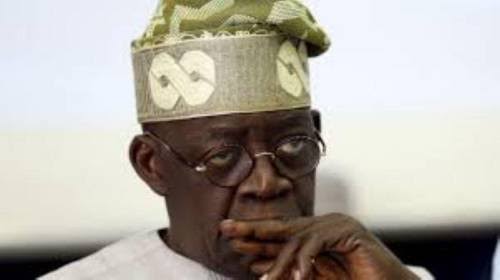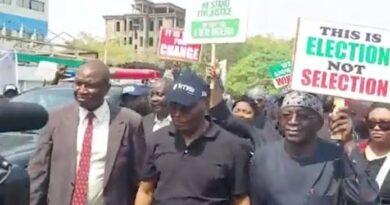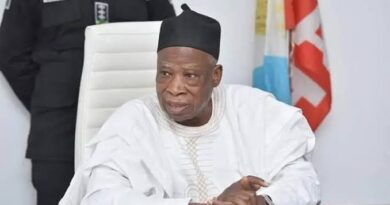Court to Hear lawsuit on Tinubu’s False Certificate in September
The Federal High Court in Abuja has set September 7 for the hearing of a lawsuit that seeks to bar Bola Ahmed Tinubu, the All Progressives Congress (APC) nominee for president, from running in the 2023 elections due to allegations that he presented a falsified certificate.
The hearing was set by Justice Ahmed Mohammed. He also granted an ex-parte order for Tinubu to get substituted service after allegedly interfering with the personal serving of court documents.
The plaintiffs, four APC chieftains, are asking the court to rule that Tinubu is ineligible to run for president in the upcoming 2023 election as an All Progressives Congress candidate because of his information to the Independent National Electoral Commission (INEC) as the party’s presidential candidate.
Goddy Uche, the plaintiff’s attorney, informed the court that substituted service was required because all efforts to serve the presidential candidate had failed because he could not be located.
The Vacation Judge, Justice Mohammed, issued a brief judgement in which he directed that Bola Tinubu be considered to have received adequate service of process from the court by having it sent to the APC National Secretariat.
He also set a hearing date of September 7 for the case.
The plaintiffs in the case asked the court to rule on whether certain provisions of the Constitution of the Federal Republic of Nigeria, 1999 (as amended), including sections 1(3), 4(1) and 2, 14(1),(2)(a), and (c), and 42(1)(a) and (b), are not violated by section 29(5) of the Electoral Act of 2022, which was passed by the fourth defendant and modified by section 31(5) of the Electoral Act of 2010 (as amended).
If the 3rd Defendant did not submit a forged certificate to the Independent National Electoral Commission (INEC), the 1st Defendant would have been disqualified from running in the upcoming 2023 Presidential General Election in light of the Supreme Court’s ruling in the case Modibbo Vs. Usman (2020) 3 NWLR(PT.1712)470 and the provision of section 137(1)(j).
They also prayed that upon the favourable determination of the above questions, for the following reliefs:
An order from the court declaring that section 29(5) of the Electoral Act of 2022 is unconstitutional, ultra vires the fourth defendant, has no legal force and has no effect.
A court ruling removing or repealing section 29(5) of the Electoral Act 2022 from the Electoral Act and the body of existing laws of the Federal Republic of Nigeria because it is ultra vires the rights of the fourth and fifth defendants is unconstitutional, null, invalid, and has no legal force.
A declaration that the third defendant attempted to run for president of the Federal Republic of Nigeria by presenting a falsified certificate to the Independent National Electoral Commission.
A finding that the third defendant is ineligible to run in the 2023 presidential election as a representative of the second defendant because he gave the Independent National Electoral Commission a fraudulent certificate to run for president of the Federal Republic of Nigeria.
An order barring the 3rd Defendant from running for office or taking part in the upcoming 2023 Presidential general election on the 2nd Defendant’s behalf.
The plaintiffs alleged that Tinubu falsely swore to an affidavit in 1999 in which he claimed to have attended St. Paul Aroloya Children Home School, Ibadan, from 1958 to 1964, and Government College, Ibadan, from 1965 to 1968, and presented the same to INEC, in a 33-paragraph affidavit in support of the lawsuit deposed to by Ibiang Miko Ibiang.
That the deposition had turned out to be false and that to conceal the falsity of the information he submitted to INEC, he had omitted to provide any information relating to his primary and Secondary schools in his INEC form for the 2023 election.




